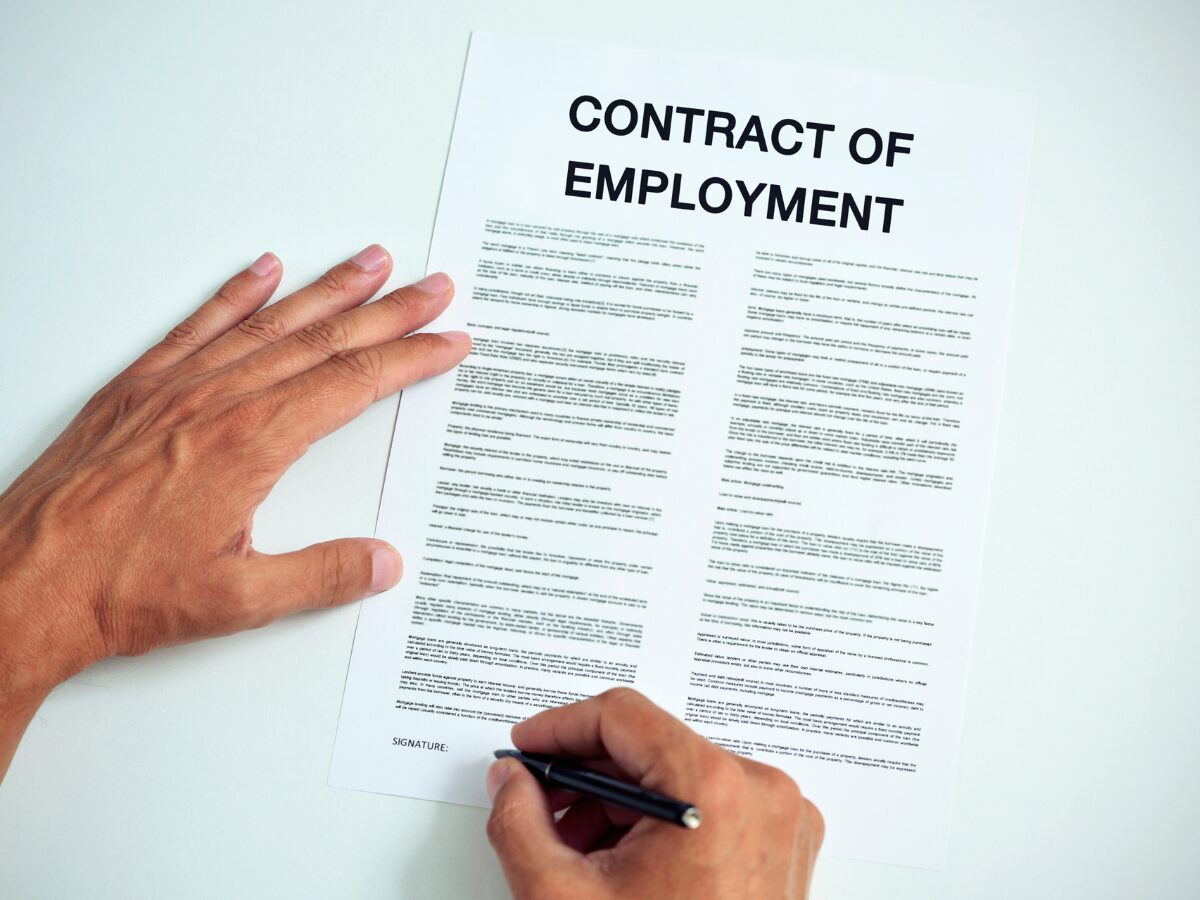Are you newly employed or looking to better equip yourself with knowledge on Singapore’s Employment Act? Reading this article is the right step forward.
Understanding this legislation is crucial for both employees and employers in Singapore. It safeguards your rights and sets clear guidelines for workplace practices. Whether you are an employer looking to ensure compliance or an employee seeking to understand your rights, this guide will provide a comprehensive overview of the Employment Act:
- Overview of Singapore’s Employment Act
- Who does Singapore’s Employment Act apply to?
- Key Employment Terms (KETs)
- Salary and bonus
- Working hours and overtime
- Payment of salary
- Leave entitlements
- Rest days and public holidays
- Annual leave
- Sick leave
- Health insurance
- Maternity and childcare leave
- Central Provident Fund (CPF) contributions
- Probation period
- Employment termination
- Retrenchment/Layoffs/Downsizing
- Dispute resolution
- Resources to keep yourself informed and protected
Overview of Singapore’s Employment Act
First off, what exactly is the Employment Act?
Essentially, it’s Singapore’s main labour law, protecting the rights of employees and ensuring fair treatment
Who does Singapore’s Employment Act apply to?
You would think the Employment Act would apply to all employees, right?
Well, that’s not always the case.
While The Employment Act applies to “employees” as defined under the Act, it excludes managerial and executive positions, domestic workers, seamen, and most government staff. You are likely covered by the Act when employed under a contract of service. The Employment Act provides additional protections for employees earning below SGD 2,600/month. These protections cover various aspects such as:
- Rest days, hours of work, and overtime: Ensuring fair work hours and compensation for extra work.
- Public holidays: Entitling employees to paid holidays or substitute holidays.
- Annual leave: Mandating a minimum number of leave days.
- Sick leave: Providing paid leave for medical needs.
- Retrenchment and retirement benefits: Securing benefits in case of job loss or retirement.
- Annual wage supplement: Ensuring additional yearly payments in some cases.
It’s also important to note the distinction between a contract of service and a service contract. The former refers to employees with regular work arrangements, while the latter applies to independent contractors or freelancers.
Key Employment Terms (KETs)
 Next, let’s talk about Key Employment Terms (KETs).
Next, let’s talk about Key Employment Terms (KETs).
As an employer, you must provide KETs to employees continuously hired for 14 days or more. These terms should include job title, main duties, and salary. They need to be issued in writing, either as a soft or a hard copy. This ensures transparency and sets clear expectations for both parties.
If you’re an employee, make sure you receive and understand your KETs.
Salary and bonus
In Singapore, there is no minimum salary requirement. However, salaries must be paid at least once a month within seven days after the salary period. Overtime pay must be settled within 14 days.
Although there is no statutory requirement for bonus payments, it is common practice to include an annual bonus equivalent to at least one month’s salary, often referred to as the 13th-month payment.
Working hours and overtime
The standard working hours in Singapore are capped at 44 hours per week, with a maximum of eight hours per day. If you work beyond these hours, you are entitled to overtime pay.
Under specific conditions, a maximum of 12 hours of work per day, including overtime, is allowed. For shift workers, the limit remains 12 hours per day.
Overtime is calculated at 1.5 times the hourly basic rate of pay.
For example, if you earn a S$1,500 basic salary per month, your hourly basic rate of pay is:
12 x S$1,500 52 x 44 = S$7.50 (to the nearest cent)
For each hour of overtime that you work, your overtime pay is calculated as S$7.50 x 1.5 (*overtime rate) = S$11.25 (to the nearest cent)
You need to be aware of these regulations to avoid exploitation and ensure you’re fairly compensated for your time.
Payment of salary
Salary payment is another key aspect covered by the Employment Act. Employers are required to pay salaries at least once a month, and overtime pay must be included in the salary payment.
Additionally, itemised pay slips must be provided, detailing the breakdown of payments and deductions. This transparency helps you keep track of your earnings and ensures that employers adhere to legal payment schedules.
Leave entitlements

Rest days and public holidays
Your rest days and public holidays are also protected under the Act.
As an employee, you are entitled to one rest day per week, usually on Sundays. If you work on a rest day, you should receive additional compensation.
Employees are also entitled to 11 annual paid public holidays. These encompass occasions such as New Year’s Day, the first and second day of Chinese New Year, Good Friday, Labour Day, Vesak Day, National Day, Hari Raya Puasa, Deepavali, Hari Raya Haji, and Christmas Day.
Public holiday entitlements include either an extra day’s pay or a substituted rest day if you are required to work on a holiday.
Annual leave
You earn annual leave based on your years of service, with a minimum of seven days for the first year, with an additional day for each subsequent year of service. Common practice often sees around 14 days per year, ensuring employees have ample time for rest and personal matters.
Sick leave
Sick leave entitlements are based on the length of service. Employees with six months or more of service are entitled to 14 days of sick leave and 60 days of hospitalisation leave. Those with less service time receive a proportionate amount of leave. A medical certificate is required to qualify for sick leave.
Health insurance
While there is no statutory requirement for private health insurance, Singapore Citizens or Permanent Residents are covered under Medishield. The common practice of providing additional health insurance varies by company size, with larger companies more likely to offer such benefits.
Maternity and childcare leave
Eligible employees are entitled to 16 weeks of paid maternity leave. Additionally, six days of childcare leave per year are provided for employees with children below seven. Dismissal during maternity leave is strictly prohibited, offering robust protection for expectant and new mothers.
Central Provident Fund (CPF) contributions
The Act also ensures various employee rights and protections.
Keep in mind that if you’re employed as a Singapore Citizen or Singapore Permanent Resident and earn above S$50 per month, your employer is obligated to contribute to your Central Provident Fund (CPF). This applies regardless of whether you’re working part-time, on an ad-hoc basis, or under contract, including during your probation period. Employers must cover both their and their employees’ CPF contributions each month. If your monthly earnings exceed S$500, your employer can reclaim your portion of the contribution from your total wages.
There are no CPF contributions for foreign employees.
Moreover, fair employment practices are enforced to prevent discrimination and ensure a safe working environment. Employers must comply with these practices to create a fair and inclusive workplace.
Read more: Latest updates on CPF contribution rates in Singapore 2024 and how much to pay
Probation period
There are no statutory requirements for a probation period, yet it is common practice to include one. Typically, a probation period lasts three to six months, during which a shorter termination notice period is applied. This period allows the employer and employee to assess suitability for the role.
Employment termination
Termination of employment requires written notice or salary-in-lieu-of notice. The notice period depends on the employment contract. Common practice includes a two-week notice during the probation period and a one-month notice after confirmation. This ensures a smooth transition and adequate time for both parties to make necessary arrangements.
Retrenchment/Layoffs/Downsizing
In cases of retrenchment, layoffs, or downsizing, final salaries and benefits are due on the last day of work. The notice period follows the terms set in the employment contract. Retrenchment benefits are typically provided for employees with at least three years of service, although smaller companies may only meet statutory requirements.
Dispute resolution
Disputes between employees and employers can arise, and knowing how to handle them is vital.
The Employment Claims Tribunals (ECT) provide a platform for resolving salary-related disputes quickly and affordably. If you face any workplace issues, it’s important to follow the proper steps for dispute resolution, which may include mediation or direct negotiation with your employer. This ensures that disputes are settled fairly and amicably.
Keep yourself informed and protected!
For more detailed information and guidance, the Ministry of Manpower (MOM) website is an invaluable resource. It provides extensive guides, FAQs, and updates on the Employment Act.
Additionally, the Workright initiative offers resources to help employees and employers understand and comply with employment laws. Utilising these resources ensures that you remain informed and compliant.
The post Everything you need to know about Singapore’s Employment Act (2024) appeared first on .

